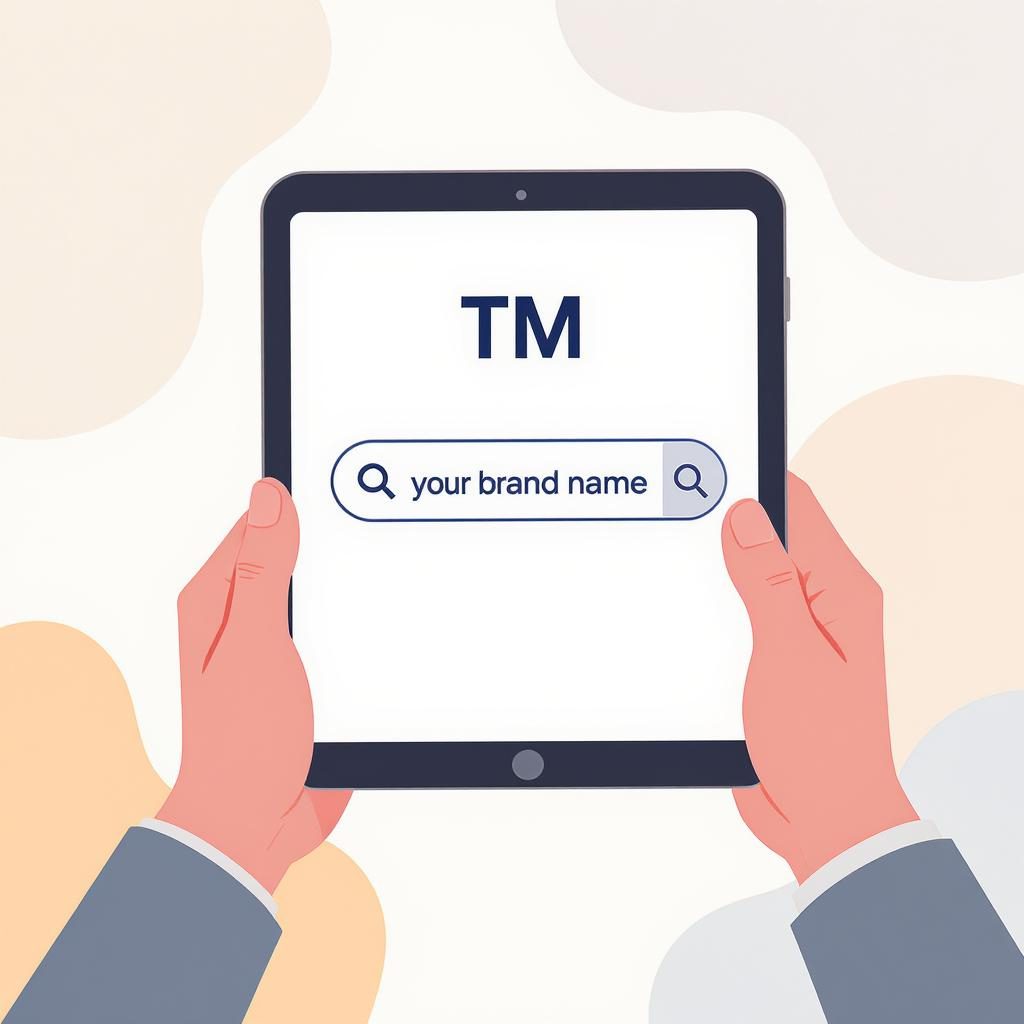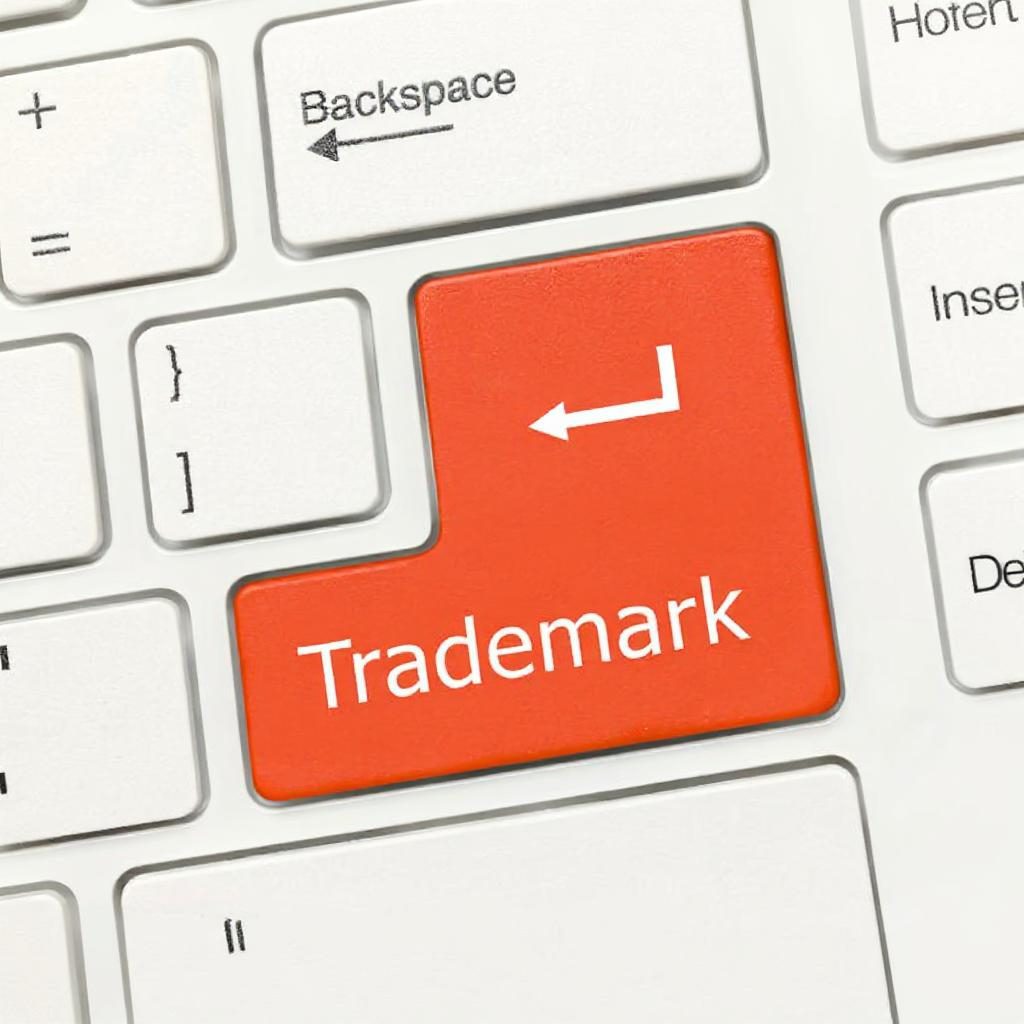
Brand Registration Guide in 2025
In the fast-evolving world of business and intellectual property, timing is everything. Whether you’re launching a startup, building an e-commerce empire, or growing a legacy brand, 2025 presents a rare


Trademark registration in Brazil follows a first-to-file system, meaning the exclusive rights to a trademark are granted to the first party that successfully registers it. Although there are limited exceptions — like asserting a “right of precedence” based on prior good-faith use — these cases are uncommon and demand substantial proof. If you plan to do business in Brazil, it’s strongly advisable to submit your trademark registration application as early as possible. This ensures your legal protection, secures your brand identity, and minimizes the risk of future disputes.
We’re here to assist you with trademark registration in Brazil. Our dedicated Brazilian attorney will handle all your legal requirements, from conducting trademark clearance searches to securing your trademark registration.
The prices are in USD$ for the Brazil
Covers filing your application and reporting the progress all the way to registration. 2 classes included. This is our entry-level package.
Covers full trademark registration, including reporting and responding to non-substantive examiner’s objections and free re-filing.
Covers all aspects of trademark registration, including responding to all examiner’s objections and free re-filing. More free extras.
If your budget is limited and our free trademark search reveals no obstacles to registration, you can proceed with confidence.
This covers everything included in the “SAIL THROUGH” package, plus reporting and handling of non-substantive (procedural) office actions, along with free re-filing if your trademark is refused by the Brazilian Trademarks Office.
Free re-filing is offered under the terms of our “SAIL THROUGH” package — while you’ll cover the government fees, we waive our professional fees. For more information, please see our FAQ section on re-filing.
This is a single-class application. Each additional class incurs the same government fees, and our professional fee for the second class is $450.
The “BELLS AND WHISTLES” package includes government fees, responses to substantive office actions, opposition proceedings, and additional free extras.
Our most popular package offers peace of mind and budget predictability. This is the option we recommend for trademark registration in Brazil.
We handle non-substantive office actions at no extra cost. Plus, if your trademark is refused, you have the option to file a different trademark with our professional fees waived!
If your trademark is refused, we’ll file an alternative application at no professional fee.
Includes all services in the “ALL IN” package, plus handling and responding to substantive office actions, along with free re-filing if the client’s trademark is refused by the Trademarks Office.
Free re-filing is available under the terms of our “ALL IN” package—you’ll cover government fees, while we waive our professional fees. For more details, please see our FAQ section on re-filing.
This is a single-class application. Each additional class incurs the same government fees, and our professional fee for the second class is $995.
Receive unlimited consultations regarding your trademark, with an average value of $250.
Government fees, opposition proceedings, and cancellation proceedings.
If you prefer to pay a single fee and avoid unexpected charges later, this package is ideal—especially if our trademark search revealed potential obstacles to your registration.
We handle all office actions at no extra cost. Additionally, if your trademark is refused, you have the option to file a different trademark with our professional fees waived! This package offers complete peace of mind and budget predictability. Learn more about why this is our best package here.
If your trademark is refused, we’ll file an alternative application at no professional fee.
The Brazilian government filing fee is R$415 (approximately US$85) per application, per class.
The Brazilian government registration fee is R$745 (about $150) per application, per class.
Brazilian government renewal fees are approximately R$1,065 (around USD 220) per application, per class.

Brazil uses the Nice Classification system for categorizing goods and services in trademark applications. This internationally recognized system, established by the Nice Agreement, divides goods and services into 45 classes — 34 for goods and 11 for services.
When applying for a trademark in Brazil, applicants must specify the classes their trademark will cover based on this system. Each class groups similar types of products or services together, which helps determine the scope of protection for the trademark.
Just like in trademark registration in the EU, selecting the correct classes in Brazil is essential to secure effective legal protection and avoid conflicts with existing marks. It’s advisable to conduct a thorough trademark search and classification review before filing to ensure your brand is properly protected in your target market.
In Brazil, several reasons can lead to the rejection of a trademark application. Understanding these factors is essential, just like when preparing for trademark registration in the EU or other jurisdictions. Common grounds for rejection in Brazil include:
Lack of Distinctiveness:
If a trademark is too generic, descriptive, or lacks distinctive character, it may be refused. Brazil requires trademarks to clearly identify and distinguish goods or services.
Similarity to Existing Trademarks:
Applications can be rejected if the proposed trademark is identical or confusingly similar to an existing registered or pending trademark in the same or related classes, potentially causing consumer confusion.
Violation of Public Order or Morality:
Trademarks containing offensive, immoral, or illegal elements, or those contrary to public policy, will be refused.
Prohibited Symbols or Names:
The use of national flags, official symbols, names of public entities, or protected geographical indications without proper authorization will result in rejection.
Misleading Marks:
Trademarks that falsely suggest quality, origin, or characteristics of the goods or services may be refused for being deceptive.
Non-Compliance with Legal Requirements:
If the application lacks necessary documentation, classification errors, or fails to meet formal requirements, it may be rejected by the Brazilian National Institute of Industrial Property (INPI).
As of August 2019, the United States Patent and Trademark Office (USPTO) requires all foreign applicants to be represented by a licensed US trademark attorney. What does this mean for you? If you or your business are based outside of the US, you must appoint a qualified US attorney to submit your trademark application.
If your application was filed before August 2019 and you’ve received any correspondence from the USPTO after that date — such as an Office Action or request for additional information — you’ll also need a US attorney to respond on your behalf.
Our service makes this easy by connecting you with an experienced US trademark attorney who will handle the filing and legal representation for your application.
When applying for a trademark registration in Brazil, certain names, symbols, and elements are prohibited by law and cannot be registered as trademarks. Much like the restrictions in trademark registration in the EU, Brazil has specific rules to protect public interest and prevent consumer confusion. Here’s what you cannot register:
Generic or Descriptive Terms:
Words that simply describe the product’s nature, quality, purpose, or characteristics — like “Fresh Water” for bottled water — are not eligible unless they acquire distinctiveness through long-term, exclusive use.
Deceptive or Misleading Marks:
Trademarks that could mislead consumers about the origin, quality, or nature of the product or service are not permitted.
Offensive or Immoral Content:
Any symbol, word, or image considered offensive, immoral, or contrary to public order and good customs will be refused.
Official Symbols and National Flags:
Names, flags, emblems, coats of arms, seals, or symbols of Brazil, other nations, international organizations, or public bodies cannot be registered without proper authorization.
Famous Personal Names or Signatures:
Names, signatures, or images of famous individuals or public figures cannot be registered without their consent or, if deceased, authorization from their heirs.
Commonly Used Shapes and Technical Features:
Shapes of products or packaging that are necessary for a technical effect or provide a functional advantage cannot be protected as trademarks.
Religious Symbols:
Religious images, phrases, or symbols intended for faith-related use are not registrable as trademarks.
In Brazil, various categories of trademarks are eligible for protection under the Brazilian National Institute of Industrial Property (INPI). These categories are similar to those recognized in trademark registration in the EU and include:
Word Marks:
Protection for words or combinations of words without any specific font or design.
Figurative Marks:
Logos, designs, symbols, or images that distinguish goods or services.
Combined Marks:
A combination of words and figurative elements presented together.
Three-Dimensional Marks:
Unique shapes or packaging of products that are distinctive and non-functional.
Collective Marks:
Used by members of an association or group to identify goods or services originating from them.
Certification Marks:
Indicate that products or services meet certain standards or certifications set by the mark owner.
Since August 3, 2019, the United States Patent and Trademark Office (USPTO) requires all forei
Many trademark service providers, including those assisting with trademark registration in the EU, often offer complimentary trademark search assistance in Brazil as part of their package. A trademark search is a crucial first step to identify any existing trademarks that may conflict with your desired mark, helping to reduce the risk of refusal or opposition during the application process.
If you’re interested in registering your trademark in Brazil, conducting a thorough and professional trademark search with expert assistance can save you time and costs in the long run. It’s best to check directly with your chosen trademark service provider whether they include this service free of charge or as an add-on.
Whether you’re pursuing trademark registration in the EU or Brazil, starting with a comprehensive search is key to a successful trademark application.
gn-domiciled applicants — meaning anyone based outside of the US — to appoint a licensed US trademark attorney for any filings and proceedings before the USPTO and the Trademark Trial and Appeal Board (TTAB).
We’ve got you covered. We work with a select network of trusted US trademark attorneys who handle filings on behalf of our international clients. Whether you’re starting a new application or already filed on your own, we can take over your case and assign a US attorney to represent you — and we do this at no extra cost.
Unlike many other firms that raised their prices after this rule change, we kept our fees consistent. In every country where we offer trademark services, we ensure your application is submitted by a qualified local attorney or trademark agent, so you’ll always receive proper legal representation.
When filing a trademark application, it’s essential to specify the exact goods and services your trademark will cover. These are organized into different categories called trademark classes.
Classes 1 to 34 cover products — physical items you can touch.
Classes 35 to 45 cover services — intangible offerings.
Here’s a general overview of the categories to give you an idea (please note: this is a simplified guide for reference only and shouldn’t be used for official filings):
Yes, individuals can file trademark applications independently in Brazil without mandatory representation. Unlike some jurisdictions, the Brazilian National Institute of Industrial Property (INPI) allows both individuals and companies to submit their own applications directly.
However, while self-filing is permitted, many applicants choose to work with trademark professionals or attorneys to navigate the complexities of the Brazilian system. This helps ensure proper classification, compliance with legal requirements, and a smoother trademark registration in Brazil process.
Similarly, when considering trademark registration in the EU, applicants often rely on experienced agents or firms to manage filings with the European Union Intellectual Property Office (EUIPO), especially for international or business clients.
So, while filing independently is possible in Brazil, professional guidance can greatly improve your chances of a successful trademark registration.
Yes, individuals can file trademark applications independently in Brazil without mandatory representation. Unlike some jurisdictions, the Brazilian National Institute of Industrial Property (INPI) allows both individuals and companies to submit their own applications directly.
However, while self-filing is permitted, many applicants choose to work with trademark professionals or attorneys to navigate the complexities of the Brazilian system. This helps ensure proper classification, compliance with legal requirements, and a smoother trademark registration in Brazil process.
Similarly, when considering trademark registration in the EU, applicants often rely on experienced agents or firms to manage filings with the European Union Intellectual Property Office (EUIPO), especially for international or business clients.
So, while filing independently is possible in Brazil, professional guidance can greatly improve your chances of a successful trademark registration.
This is the legal name of your business entity.
It’s registered with your state, provincial, or national government.
It appears on legal documents like incorporation papers, tax filings, and contracts.
Example:Microsoft Corporation
Important:
One company can own several brands and operate under multiple names.
This is the name you use in the marketplace to sell your products or services.
It may or may not be the same as your company name.
If it’s different, you typically need to register it as a “Doing Business As” (DBA) or “Trade Name.”
This is your address on the internet — the web address people type to visit your website.
It doesn’t give you trademark rights by itself, but it’s a valuable part of your brand identity.
Example:www.microsoft.comwww.skype.com
A single company can own multiple domain names for different brands, campaigns, or products.
A trademark is a legally protected brand identifier.
It can be a word, phrase, logo, symbol, sound, color, or even a scent that distinguishes your product or service from others in the market.
Registered trademarks give you exclusive rights to use that mark in connection with specific goods or services.
Example:MICROSOFT ![]()
The Windows logo ![]()
The Skype icon ![]()
Incorporating your business or registering a company name does not automatically give you trademark rights to use that name as your brand.
For example, in the US, each state has its own rules for business name registration. If you register an LLC named Coolapples LLC in Delaware, that registration only applies in Delaware. Another business could register Coolapples LLC in Indiana or any other state without infringing on your state-level business name.
This means your state-level company name registration does not protect your brand nationwide.
If you want exclusive, nationwide rights to your brand name—especially if you plan to expand beyond one state—you should register a federal trademark with the United States Patent and Trademark Office (USPTO). This trademark gives you the exclusive legal right to use your brand name for your goods or services across the entire country.
Similarly, if you’re in Canada or Australia, registering a trademark with the respective national trademark office will give you country-wide protection and make it easier to sell, license, or enforce your rights to your brand.
No, Brazil does not require proof of trademark use at the time of application or registration during the trademark registration in Brazil process. The Brazilian National Institute of Industrial Property (INPI) grants trademark registrations based on the application and examination of formal and substantive criteria, without demanding evidence that the trademark is already in use.
However, trademark owners must use their registered trademark in commerce within five years of the registration date. Failure to use the trademark genuinely in Brazil during this period can lead to cancellation of the trademark rights due to non-use.
This approach is similar to many jurisdictions, but differs from some countries where proof of use is required during registration. Understanding these rules helps businesses protect their brands efficiently in Brazil and plan their use strategy after obtaining trademark registration in the EU or Brazil.
In Brazil, the trademark opposition period lasts for 60 days from the date of publication of the trademark application in the INPI Industrial Property Gazette. During this time, third parties can file an opposition if they believe the trademark conflicts with their existing rights or does not meet legal requirements.
This opposition period is a critical step in the trademark registration in Brazil process, allowing owners of earlier marks or interested parties to challenge an application before the trademark is officially registered.
Similarly, in trademark registration in the EU, there is a three-month opposition period after publication, giving stakeholders the chance to oppose the application. Understanding and monitoring these periods is essential to protect your brand rights effectively in both jurisdictions.
A trademark registered in Brazil is valid for 10 years from the date of registration. After this initial period, the trademark owner can renew the registration indefinitely by paying the required renewal fees every 10 years.
Maintaining your trademark registration in Brazil is essential to keep exclusive rights to your brand and prevent others from using similar marks. This long-term validity and the option for unlimited renewals make trademark registration in Brazil a valuable investment for businesses looking to protect their brand in the Brazilian market.
Similarly, trademark registration in the EU also grants a 10-year validity period with the possibility of unlimited renewals, providing consistent and ongoing protection across multiple countries.
Trademarks may be filed at the state or federal level. State trademarks protect your mark in a specific state while federal trademarks protect your mark in all the states. State trademarks generally provide less legal protection than federal trademarks. Businesses operating in only one state should trademark in that state. Businesses operating in interstate commerce may file for a federal trademark. For example, if you operate a restaurant or a hair-dressing salon in Florida, you are not eligible for a federal trademark. In this case, you should apply for a trademark in the state of Florida. However, if you have two or more restaurant locations in more than one state, in our case, one in Florida and one in Georgia, you are eligible for a federal trademark. A business intending on expanding nationally or internationally should conduct a trademark search and file a federal trademark as soon as possible.
To file a trademark registration in Brazil with the Brazilian National Institute of Industrial Property (INPI), you need to prepare and submit the following documents and information:
Applicant Details:
Full name or company name, nationality, address, and contact information of the applicant.
Trademark Representation:
A clear image or depiction of the trademark (word, logo, or combined mark) you want to register.
List of Goods and Services:
A detailed description of the goods or services covered by the trademark, classified according to the Nice Classification system.
Power of Attorney (if applicable):
If you appoint a representative or trademark attorney, a Power of Attorney document may be required.
Priority Documents (if applicable):
If claiming priority from an earlier application filed in another country within six months, you must submit a certified copy of the earlier application.
Proof of Payment:
Receipt showing payment of the official filing fees.
Additional Documents (if necessary):
Any other supporting documents, such as translations or disclaimers, depending on the application specifics.
| Rank | Country | Average Time to Register | Notes |
|---|---|---|---|
| 1️⃣ | Germany | 1–3 months | Fastest. Can register within 1 month with accelerated examination. Occasionally unpredictable. |
| 2️⃣ | United Kingdom | 3.5–4 months | Consistent and low government fees. |
| 3️⃣ | European Union (EU) | 3.5–7 months | 3.5–4 months via “fast-track”; regular filings take 6–7 months. Higher government fees. |
| 4️⃣ | Mexico | 4–8 months | Can fluctuate; some applications take longer. |
| 5️⃣ | Australia | 7.5–12 months | Most trademarks register within a year if no objections. |
| 6️⃣ | China | 9–12 months | Appeals can delay by 8+ months. Improving timelines. |
| 7️⃣ | India | 10–12 months | Similar to China in average timelines. |
| 8️⃣ | United States | 12–14+ months | Often delayed by office actions. Can exceed a year easily. |
| 9️⃣ | Japan | 10–14 months | Fairly steady timeline. |
| 🔟 | Brazil | 12–18 months | Among the slower countries for registration. |
| 1️⃣1️⃣ | Canada | 36–42 months | Slowest. Pandemic delays made it worse. Expected to improve post-Madrid Protocol membership. |
In Brazil, a Power of Attorney (PoA) is not strictly required to file a trademark application with the Brazilian National Institute of Industrial Property (INPI) if the applicant files directly. Individuals and companies can submit applications on their own without mandatory representation.
However, if you appoint a trademark agent or attorney to handle the filing and prosecution on your behalf, the INPI may request a signed Power of Attorney to confirm their authority to act for you.
This is somewhat similar to the process in trademark registration in the EU, where formal Powers of Attorney are generally not required at filing but may be requested in certain procedural stages.
Having professional representation with a PoA can simplify the process and help avoid mistakes in your trademark registration in Brazil.

In the fast-evolving world of business and intellectual property, timing is everything. Whether you’re launching a startup, building an e-commerce empire, or growing a legacy brand, 2025 presents a rare

In today’s competitive business environment, protecting your brand identity is not just a legal necessity—it’s a strategic move that can have long-lasting impacts on your business’s success. One of the

In today’s fast-paced and highly competitive business world, building a brand that stands out is no easy task. From your logo and business name to your product packaging and slogans,
Trademark Focus is a trusted trademark registration firm with more than 10 years of expertise. We specialize in handling trademark applications and protection services across Canada, the US, and internationally.
No.518, Jianshe Avenue, Jianghan District, Wuhan, Hubei Province